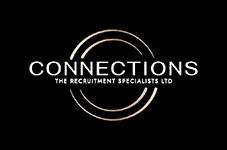The world of recruitment is one that is full of change, excitement, and a fair amount of competition thrown in for good measure. There’s no shying away from the fact that the hours can be long, but there’s plenty of rewards that are there for the taking, including that all-important commission. So what can you expect as your start out your sterling new career as a Recruitment Consultant?
Training, training, training
In your first couple of months, you’ll be brought up to speed with all your training, covering everything from interviewing to employment law in a post-GDPR climate. You’ll then start off in a resourcing role; this works as a junior consulting position, which will cover a small range of accounts. Targets are kept relatively low at this stage.
Once you’ve settled in and grown in confidence, you’ll begin to take on more clients and offer more market knowledge to your candidates. In addition, your financial targets will rise, but your earnings will increase at a similar rate. This where you can really start reaping the rewards of your hard work.
Relationship building
To succeed in recruitment, you’ll need to be confident in connecting with others and developing strong, strategic relationships. Whether you’re looking to win a new client or establish a support network in your workplace, be sure to flex your communication skills as much as possible. Remember, recruitment isn’t necessarily about your previous recruitment experience- if you’re able to demonstrate your ability to build meaningful connections, you’ll soon start to stand out from the crowd.
You’ll need to keep on top of multiple situations
One of the biggest challenges you’ll face as a Recruitment Consultant is managing the needs and expectations of your clients and candidates. In an industry that focuses upon people instead of products, there are a wealth of factors that are inevitably outside your control; candidates can drop out at the final hour, or a client may require more CVs than anticipated. As such, you’ll need to ensure that you’re adaptable to any last minute changes, and establish clear expectations and response times with whoever you’re dealing with. Plan your time effectively, and keep a record of all correspondence.
Talent Pool development
As you build up your list of clients and contacts, you can start developing a database for your top talent. This can be done easily by making contacts through events and professional associations, and taking advantage of networking tools such as LinkedIn. However, be sure to take a real, genuine interest in prospective candidates here- remember that their careers are of real importance, so you’ll want to build up a network that is authentic as possible. Make sure you’re mindful of the Data Protection Act, and let people know if you’re looking to retain their contact details.
You’ll learn how to offer the best candidate experience
This can take time to perfect, especially when working with a wide variety of jobseekers. Once you find your feet though, you can begin to build up a good reputation for yourself by making the recruitment process as seamless as possible for prospective candidates, and show them that they aren’t just another number. As such, the manner that you interact with them should reflect this.
With so much competition from rival agencies, it’s essential that you liaise with candidates within agreed time frames, and provide feedback when necessary. Understandably, job seekers don’t like not knowing where they stand, so be sure to keep in touch and update them on any developments as soon as you can.
As you progress through your career, remember that most important thing as a Recruitment Consultant is to remain authentic and human, no matter the candidate or the seniority of the client. People are people, and being genuine and sincere will get you far further than being forced or disingenuous.
Let's Connect! 0161 832 03 03
CEA@connectionsrec.co.uk
